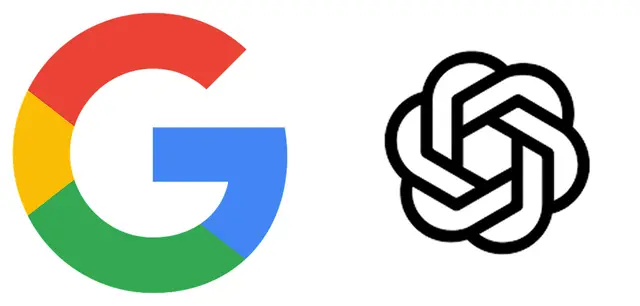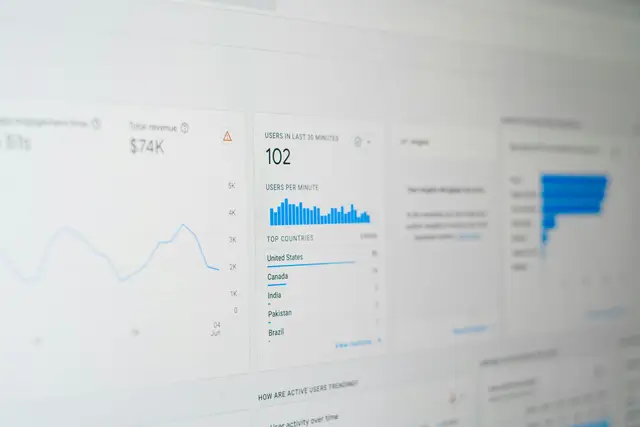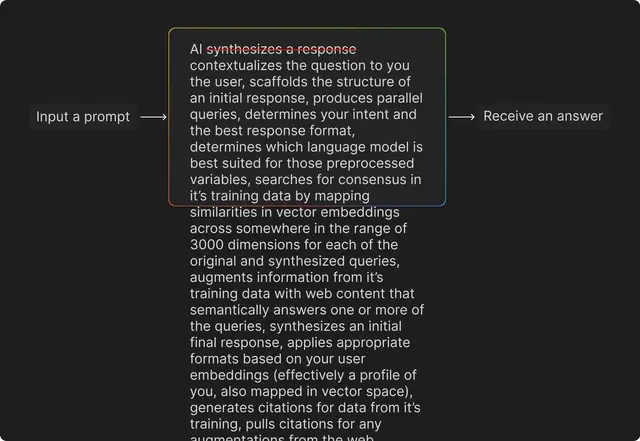Published on Thu Oct 02 2025 00:00:00 GMT+0000 (Coordinated Universal Time) by John Wheeler
Extrapolating a guess: is AI the eventual death of the click through?
SEO isn’d dead, but will it be eventually?
Let’s start with some working definitions before diving in. There’s plenty of debate about what SEO really encompasses, whether “GEO” or “AEO” are even useful terms, and if so, whether they simply fall under the SEO umbrella.
For this article, we’ll draw a clear line:
-
SEO will refer to a more traditional version of search. While SEO has always evolved, a major shift came with AI overviews and the resulting dip in search engine traffic. This change gives us a concrete reference point on the timeline to distinguish SEO from GEO. In short: SEO = deterministic search, where the same query produces the same SERP for all users at a given time.
-
GEO (generative engine optimization) will refer to probabilistic search where a single query produces a unique, natural-language answer, informed by user profiles and context, often differing from person to person.
Not convinced that AI produces unique answers for different users? Try it yourself. Sit down with a friend, type the same question into the same AI platform on separate computers, and hit enter at the same time. Logged-out states will show smaller differences, logged-in states will amplify the discrepancies.
The shifting role of the click-through
Historically, the click-through has been the foundation of SEO. Ranking well meant visibility, and visibility meant traffic. But in the age of AI summaries, the click itself is being abstracted away. Users increasingly consume answers directly on the platform. Whether it’s Google’s AI Overviews, Perplexity, or ChatGPT with browsing enabled, users exit their “search” without ever clicking a blue link.
This doesn’t mean content has no value. It means its primary consumption point may no longer be your website. Instead, it becomes the training data, the raw material, or the contextual reference that fuels AI’s probabilistic answers. The traditional funnel of impression → click → conversion is flattening.
What optimization looks like in an GEO/AEO world
If clicks are no longer the end goal, what replaces them? Several possibilities emerge:
-
Brand imprinting: ensuring your brand or product is referenced directly in AI answers by including semantic triples in your content.
-
Entity optimization: also known as passage optimization, which makes your content legible to LLMs and structured knowledge graphs, not just crawlers.
-
Trust signals: AI systems weight credibility differently. When grounding via retrieval augmented generation becomes necessary, authorship, citations, and consistency matter more than keyword density. Be credible (EEAT is still relevant here, and EEAT will always be a worthwhile guide)
-
Engagement off-platform: SEO may morph into a form of distributed reputation management, where your content “lives” across many probabilistic outputs rather than one deterministic SERP. Engage on forums, subreddits, in youtube comment sections, and anywhere else your ICPs actively engage. You may hit them on those platforms, or you have a second chance to be mentioned in an overview or answer that scrapes those places for training data.
This creates a tension: businesses may still want traffic, but the visibility prize is shifting from the click to the mention.
So, is AI the death of the click-through?
Not exactly, but it may be the end of its dominance. Just as the rise of social platforms once siphoned attention away from traditional SERPs, AI-driven answers are now doing the same at a larger scale.
Click-throughs will persist in some contexts like high-intent queries, transactional searches, and niche research, but the overall share of discovery and engagement will move upstream. More and more of awareness will exist on generative engines like ChatGPT.
That means SEO professionals must start thinking less about ranking positions and more about answer presence. The discipline isn’t dead, but its operating assumptions are shifting. In other words: the click-through may not die overnight, but it’s losing its monopoly as the ultimate measure of success.
If you want a deeper dive into all of the nitty gritty nuance that separates GEO from traditional SEO, check out my previous article: Answer Engine Obscurity - How a simple UI is holding back the future of AEO
Written by John Wheeler
← Back to blog



